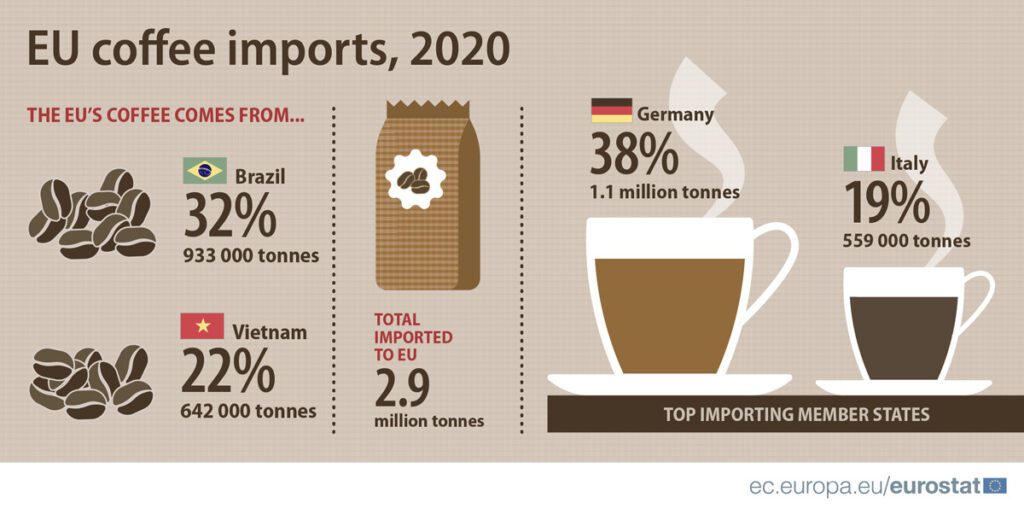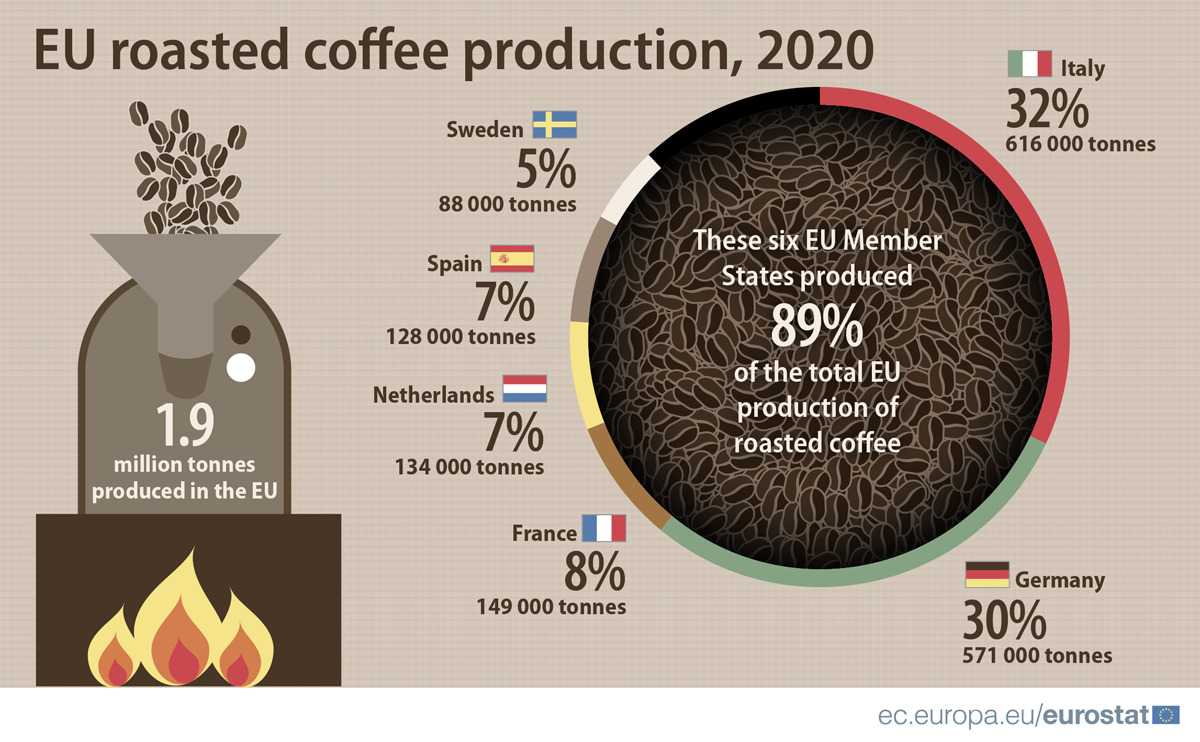KIRCHBERG, Luxembourg – In 2020, the European Union imported 2.9 million tonnes of coffee from abroad, worth €7.5 billion, Eurostat reported on the International Coffee Day. The amount has increased by 7% compared with 2010 (2.7 million tonnes). Most of the coffee imported in 2020 from non-EU countries came from two countries: Brazil (933 000 tonnes imported to the EU, or 32% of the total extra-EU imports) and Vietnam (642 000 tonnes, 22%).
The following largest extra-EU imports came from Honduras (216 000 tonnes, 7%), Uganda (166 000 tonnes, 6%), Colombia (154 000 tonnes, 5%), India (108 000 tonnes, 4%), Peru (96 000 tonnes, 3%), Ethiopia and Indonesia (both 78 000 tonnes, 3%).
These imports were mainly going into Germany (1.1 million tonnes imported, or 38% of the total extra-EU imports) and Italy (559 000 tonnes, 19%), ahead of Belgium (309 000 tonnes, 11%), Spain (274 000 tonnes, 9%) and France (205 000 tonnes, 7%).
Italy and Germany, top coffee producers of the European Union
In 2020, over 1.9 million tonnes of coffee were produced in the EU. The amount has increased by 10% compared with 2010 (1.8 million tonnes). The EU’s coffee production was worth almost €11 billion, and it was equivalent to around 4.2 kilograms per inhabitant in 2020.
Among the EU Member States, Italy produced the most roasted coffee in 2020 (616 000 tonnes, or 32% of the total EU production), followed by Germany (571 000, 30%), which was ahead of France (149 000, 8%), the Netherlands (134 000, 7%), Spain (128 000, 7%) and Sweden (88 000, 5%).
 In 2020, these six EU Member States produced 89% of the total EU production of roasted coffee.
In 2020, these six EU Member States produced 89% of the total EU production of roasted coffee.














